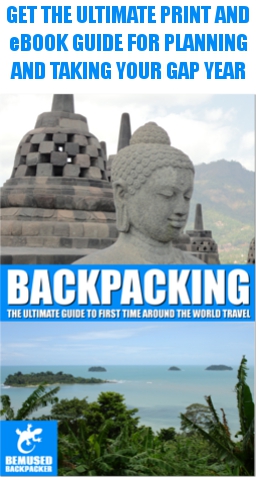
The birthplace of the blue Nile, a legendary history that is almost completely overlooked and a culture that is infinitely more than the stereotypes of famine and civil war that has been imposed on it by Western culture. Ethiopia is quite simply one of the most fascinating countries in Africa.
Ethiopia is one of Africa’s truly most unique and stunning countries, with landscapes as diverse to the unique, alien Danakil depression in the south to the sweeping savannahs and mountainous structures in the north and even the source of the Blue Nile itself, Ethiopia is truly one of Africa’s crown jewels.Yet it is also a country that has struggled to escape from the media imposed stereotypes that the West has given it. Even now, almost 40 years later, Ethiopia still gets lumbered with images of Band Aid in the 80s or even worse, conflict and terror attacks. But this is far from the truth.
Ethiopia is one of the fastest growing economies in Africa, and a huge regional political, military and economic powerhouse to boot. It is a largely politically stable nation that may still be far from perfect, but what world government isn’t?
A huge amount of foreign investment, largely from China, has led to an overhaul of the countries infrastructure, with highways replacing dirt roads and a huge cross country railway line, and this does make travel throughout Ethiopia slightly more comfortable whilst still allowing it to keep that air of wild frontier adventure.
For those travellers who give Ethiopia a chance, they will discover a backpackers paradise, where independent travel and adventure go hand in hand as they uncover the genuine warmth, culture, history and sheer majesty of this beautiful country away from the tourist and traveller hordes.
Culture And Etiquette.

Compared to many other African nations Ethiopia has managed to avoid large parts of Colonialism, and many of the indigenous cultures, the Surmi, Afar, Karo, Anuak, Nuer and Hamer have remained largely intact and untouched for centuries, and the mixture of traditional culture with a largely Christian faith is a unique privilege to observe and be a part of.
Ethiopia is a deeply religious country on average, and also a relatively conservative one, although the relaxed, laid back attitude that tends to permeate many African nations still shines through as well.
In very general terms it is a good idea to dress relatively modestly, both in the capital Addis and especially more rural areas, and always show respect and deference to elders, as this respect is an integral part of the Ethiopian culture.
Eating is done predominantly by hand, with local dishes served with huge amounts of Injera bread and various kinds of wat, berbere and curries. You should eat with your right hand as the left is reserved for personal hygiene.
Ethiopia’s largest religious group is actually Ethiopian Orthodox Christian, and as part of that culture large parts of the population fast almost every Wednesday and Friday (with only a couple of exceptions on specific religious days, and for extended periods around various religious holidays throughout the year). This means most Orthodox Ethiopians abstain from all animal products for 208 days out of the year, but vegetable and vegan foods are still permitted.
What You Need To Know.
Visas.
Most travellers, including those from the UK, will need a visa to enter Ethiopia. For travellers arriving by air at Bole International Airport E Visas can be purchased in advance now from the official Ethiopian Immigration website and is probably the easiest way to get one. Alternatively you can simply get a visa on arrival for $50 USD for one month or $75 USD for three months. They may accept other currencies but it is recommended that you bring the correct amount in USD.
If you are arriving by an of the land borders then you will be required to get a visa from the Ethiopian Embassy of that country.
Health.
It is always recommended that you are up to date with any routine vaccinations before you visit any country and Ethiopia is no exception. In addition Diptheria, Tetanus and Hepatitis A vaccinations are also recommended.
Hepatitis B, Meningococcal Meningitis, Rabies, Typhoid and Yellow Fever should also be considered for travellers in specific at risk groups, speak to a professional at a travel clinic to determine your personal risk.
Cholera may also be advised if you are in an at risk group, particularly if you are travelling off the beaten track for a significant period of time, are volunteering in a rural area with poor sanitary conditions or an aid worker for example.
Proof of yellow fever vaccination is also required if you are travelling from a country where it is present.
Malaria is present throughout Ethiopia in all areas below 2000m including some of the Great Rift Valley Lakes with the exception of Addis Ababa.
Antimalarial Prophylaxis is recommended for some travellers, depending largely on which parts you want to travel to and other risk factors such as how long you want to spend there. For backpackers spending a lot of time travelling throughout various parts of the country, antimalarials are generally recommended.
Mosquito avoidance measures such as nets, coils and DEET spray are always highly recommended as there is also a risk of dengue and other diseases.
Hospitals and clinics are of a basic standard throughout most of Ethiopia, and a good first aid kit and robust travel insurance are highly recommended.
Read more:
The Ultimate Guide To Travel Vaccinations.
Why Travel Vaccinations Are Important.
The Ultimate Travellers Guide To Malaria And Antimalarials.
Crime And Safety.
In general Ethiopia is a very safe place to visit and the absolute and overwhelming majority of travellers visits are trouble free.
The UK Foreign Office advises against all travel to any of the borders with Sudan, Kenya and Somalia, including the regions of Gode, Segag, Geladi and Gambela. All other regions, including Addis Ababa and all major tourist regions have zero warnings against them and are perfectly safe to travel through with reasonable common sense precautions.
There is a general warning from the FCO that Ethiopia is prone to incidents of civil unrest, strikes and political protests. These are often sporadic and limited in nature and are no reason to dissuade any traveller from going to Ethiopia, but obviously reasonable precautions should be taken. Keep an eye out for an local news, listen to official advice from your consulate, leave to a safe area as soon as possible and have a back up plan just in case.
It is important to remember that whilst well intentioned this official advice always errs on the side of caution and in the vast majority of cases there is no need for the majority of travellers to be concerned about these extreme situations. Ethiopia in general is a very safe country and backpackers should feel very safe in travelling there.
Read more:
Is It Safe To Travel In Ethiopia?
The Reality Of Fear And The Truth About Travel Safety.
Travel Safety Advice. The Good, The Bad And The Downright Crazy.
Costs.
The unit of currency in Ethiopia is the Ethiopian Birr (ETB).
Ethiopia is generally a pretty budget backpacker friendly place to travel, with the average daily rate for a basic budget less than £20 a day if you travel slowly, use basic public transport and keep activities to a minimum, but you can easily spend a lot of money too if you want to travel in absolute luxury and take private excursions everywhere.
In the capital, Addis Ababa, you can look at around £7 – £15 pound a night for a good dorm or private room in basic accommodation, a private en suite in a nice hotel will set you back £20 – £40 a night on average and then obviously the sky is the limit for real ultra luxury. These prices can obviously be a bit cheaper outside the capital and away from major tourist areas, and can be bartered in the off seasons depending on your skills.
Food is extremely cheap too, especially if you stick to street stalls and local eateries and coffee shops. Even in basic but decent local restaurants the quality is amazing and the price is not that high, no more than £5 – £10 for a solid mid range meal with alcohol. The fancy expensive restaurants can be a bit pricey and often do not offer much more in terms of quality.
Transport is pretty reasonably priced too, with local buses only a few pounds depending on the distance. The roads may not always be the best option though if you are going a really long distance, say from the Highlands down to the Danakil Depression for example, simply from a comfort/time and cost ratio, so if you can it may be a good idea to budget for one or two internal flights too. Ethiopia Airlines have a pretty extensive network of flights now and you can usually get a fairly reasonable price.
As always it will be the activities and excursions that will be the most considerable part of your budget after flights themselves, especially those where it is mandatory (and rightly so) to hire a local guide.
ATMs that accept international cards are relatively frequent in the major towns and cities, especially Addis Ababa, but can be almost non existent in more rural areas, and credit cards are not widely accepted anywhere but the most top end hotels and perhaps a really fancy restaurant. Some places are getting better in the capital but don’t rely on it.
Cash is king in Ethiopia and you are always better off changing your money when you get here (in fact you may find it impossible to change your currency outside of Ethiopia).
Your best bet are banks or the official money changers that you will find in malls, and you generally get a pretty fair rate from either of these, a slightly lesser rate at currency exchanges at the major hotels.
USD, euro’s and GBP are widely coveted and exchanged easily.
It is worth noting that at the time of writing the Birr is not worth mch at all and you may have trouble exchanging the local currency back to your own when you are leaving. Money changers at the airport will suddenly run out of every foreign currency you ask for and won’t accept the birr back, and they will only accept payment in USD, GBP or Euro if you want to buy anything. So bear this in mind when you are deciding how much to exchange and maybe plan ahead so you don’t exchange too much before you leave.
Read more:
Top 10 Tips To Travel Independently On A Budget.
When To Go.
January to March is considered high season in Ethiopia with long, warm, sunny days and bright blue skies throughout. Major festivals such as Timkat and Leddet happen in these months however and accommodation can get a little scarce during those times, so book ahead.
The low season is between April and September. This is the rainy season in the north and it can get painfully hot in the south, especially in the Danakil depression.
Perhaps the best time to go is the shoulder season between October and December. The weather is still pleasant, everything is in bloom in the north, conditions are ideal for wildlife spotting and the volcanic regions down south are a little cooler.
Places To See.
Aksum.

Aksum, sometimes written as Axum, is to Ethiopia what Giza is to Cairo. This small town is the epicenter of history, intrigue and legend in Ethiopia with the ruins of the palace of the Queen of Sheba herself, the supposed resting place of the lost Ark of the Covenant and the final resting place of one of the three wise men themselves.
Even on top of all of this, the stelae fields of Aksum are perhaps one of the primary attractions in Aksum, if not Ethiopia itself. The impressive structures and the hidden tombs underneath are grand enough in and of themselves, but remain even more so with the promise of an abundance of knowledge and riches still hidden away undiscovered as the stelae field is still a working archaeological site.
Aksum is quite simply unmissable.
Lalibela.

The famous rock hewn churches of Lalibela are one of Ethiopia’s most iconic and enduring images, and these world heritage protected sites are quite simply a breathtaking must see, and if you are fortunate enough to be here during a religious festival where you will see thousands of white robed Christian pilgrims swarm the ancient sites and undertake ceremonies thousands of years old, then it is an experience that will stay with you for the rest of your life.
Addis Ababa.
Like most capital cities, Addis is usually relegated to a day or two at the start or end of most travellers journey’s, but that means missing out on everything Addis has to offer. The capital is Ethiopia’s largest and fastest growing cities, with large metropolitan areas, shopping malls, museums (including the spectacular National Museum) and is a perfect place to settle for a while, get a taste of real everyday life in Ethiopia by people watching in any of the multitude of coffee shops, and use it as a base for day trips to sites just outside the city.
Gondar.

Gondar, known as the Camelot of Ethiopia thanks to the abundance of European medieval forts and castles is an absolute must see on any trip to Ethiopia, and you can share the experience of crusader knights and emperors as you wander the shells of these once glorious defensive structures, and just imagine the battles that were once waged over the ramparts..
Bishoftu.
This small resort town just outside of Addis is a spectacular example of how stunning Mother Nature can be in the form of four beautiful crater lakes, and not even the hotels, resorts and expanding town can impact on the scenery too much. There are tons of great hiking and birding opportunities here for the traveller who wants to settle down for a few days or so
Abuna Yamata Guh.

Abuna Yamata Guh is perhaps not the most spectacular rock hewn church in Ethiopia in and of itself, but its location certainly is! Carved into the top of a series of monolithic cliff faces, you have to hike up the not too challenging first half of the cliff face, but it is the final section, where you have to go barefoot and climb using ropes and toeholds that make the journey challenging but ultimately worth it!

The simple and frugal lives of the monks who tend to the church are a humbling experience, and the painted frescoes add an ecclesiastic aura to the church. If you take a minute to turn away from the church itself and look at the view of the mountain range below you, you will no longer be asking why they decided to carve a church into the top of a mountain.

Managesha National Forest.
Easily accessible from Addis, Managesha National Forest is a vast tract of forest filled with hiking and 4X4 trails that culminate in Mount Wechecha, an extinct volcano. Wildife can be difficult to spot from the trails but it is not impossible either as the trails are not overly populated by too many hikers and tourists.
Simian Mountains National Park.

This spectacular, otherworldly landscape is like nowhere else in Ethiopia and is a truly awe inspiring masterpiece of mountain peaks, deep valleys and unspoilt forest with some unique wildlife spotting opportunities that you will not find anywhere else in the world. For wildlife lovers this is the only place you will spot the Walia ibex, the Ethiopian wolf and the Gelada Baboon, and the compulsory guides are naturally predisposed to responsible and ethical trekking.
Things To Do.
Visit The National Museum.

I’ll be honest this isn’t the best museum in the world, or even in Africa. It isn’t that large and many exhibits aren’t labelled in the best way. However, it is home to one of the most important palaeontological exhibitions in the world, the world famous Lucy – our ancient ancestor that essentially changed our modern understanding of history – and it is for this reason alone that makes this museum worth a visit.
Go To An Underground Club.
Throughout Ethiopia there are local bars that serve up the famous honey wine, the deliciously potent drink that will have you joining in with the raucous entertainment even if you barely have a clue what is happening! Many bars will have local song and dance from the region you are in, and they will often gleefully drag you up on stage once they see your obvious traveller status, and if you are really lucky you will encounter a bar where an act will go round to different patrons and roast them mercilessly. This is apparently very commonplace in Ethiopia, and something that I wish they would introduce to the UK!
Explore The Coffee Shops.

Normally sitting around in coffee shops is not something I recommend doing as an actual activity, but Ethiopia is famous for its coffee and the coffee shops here are an institution and an actual experience in and of themselves, so why wouldn’t you try as many of them out as possible?
Partake In The Coffee Ceremony.

The intricate coffee ceremony is a mark of friendship and respect that is performed all over Ethiopia, and is so important that it has almost become obligatory to be offered it everywhere as a visitor, and accepting it just as important. If you are lucky enough to be invited to one, take them up on the offer and prepare to spend a good few hours redefining what it means to get to know each other over a good brew!
Go Trekking In The Highlands.

Ethiopia has some truly spectacular landscapes and breathtakingly untouched national parks, and it would be criminal not to take advantage of some of the unspoilt trekking whilst visiting the region.
Trekking is a popular activity in the Simien Mountains, Bale Mountains and the areas around Tigray and Lalibela, with grades for every ability range and well marked trails. Guides are compulsory and a great way to partake in responsible tourism as it provides locals with an income as well as a reason to protect the national parks.
Related Articles.
Ethiopian Coffee Culture: An Invitation To The Famous Coffee Ceremony.
Indiana Mike And The Hapless Wandering For The Lost Ark.
Making Positive Tourism Count In Lalibela.




